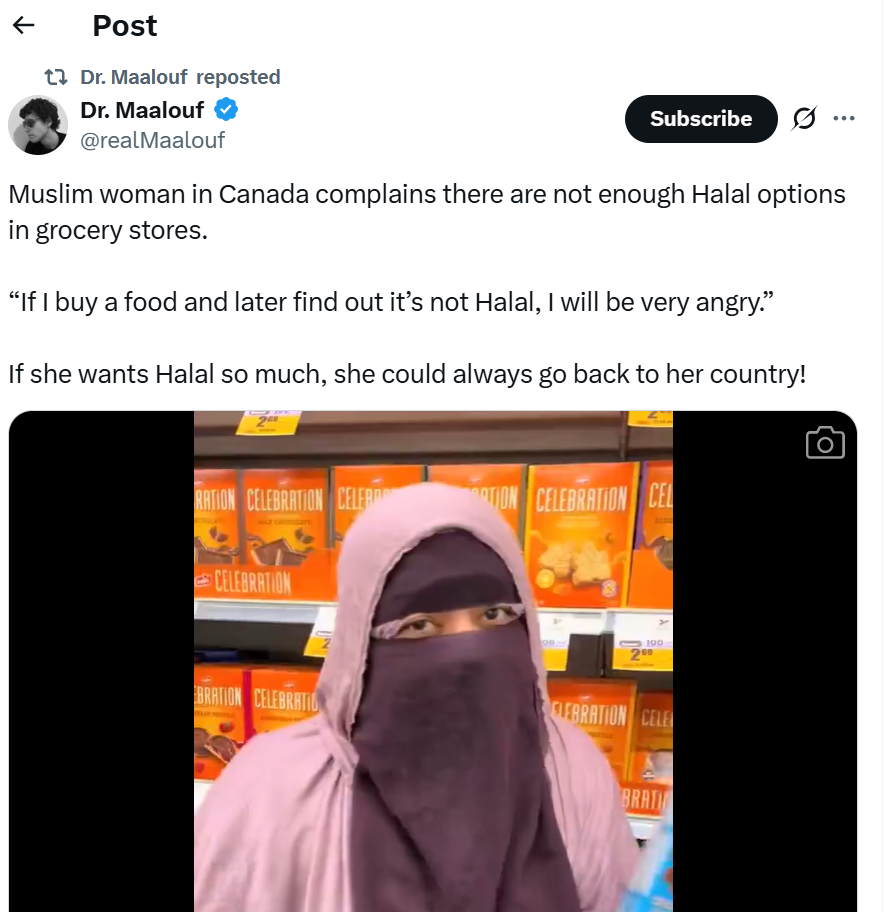
The statement “If she wants halal so much, she could always go back to her country” reflects a harmful and exclusionary attitude that undermines the principles of pluralism and citizenship. Many Muslims in canada are Canadian citizens—born, raised, educated, and contributing to society just like anyone else. Suggesting that religious minorities "go back" elsewhere simply for expressing dietary needs implies they don’t belong, which runs counter to the values of equality and multiculturalism. canada, by design, is a country of immigrants and diverse cultures, where the freedom to practice one’s religion is protected by law.
 Rather than viewing such comments as hostile or demanding, they can be an opportunity for dialogue and understanding. Retailers often respond to consumer demand—when there's a sizable community requesting halal products, it makes business sense to stock them. That’s how modern pluralistic societies function: through negotiation, representation, and respect. The goal is not to cater to every preference, but to acknowledge legitimate needs and find reasonable ways to include people from all walks of life in the public space. Dismissing such concerns outright only fuels division and prevents genuine coexistence.
Rather than viewing such comments as hostile or demanding, they can be an opportunity for dialogue and understanding. Retailers often respond to consumer demand—when there's a sizable community requesting halal products, it makes business sense to stock them. That’s how modern pluralistic societies function: through negotiation, representation, and respect. The goal is not to cater to every preference, but to acknowledge legitimate needs and find reasonable ways to include people from all walks of life in the public space. Dismissing such concerns outright only fuels division and prevents genuine coexistence.




 click and follow Indiaherald WhatsApp channel
click and follow Indiaherald WhatsApp channel